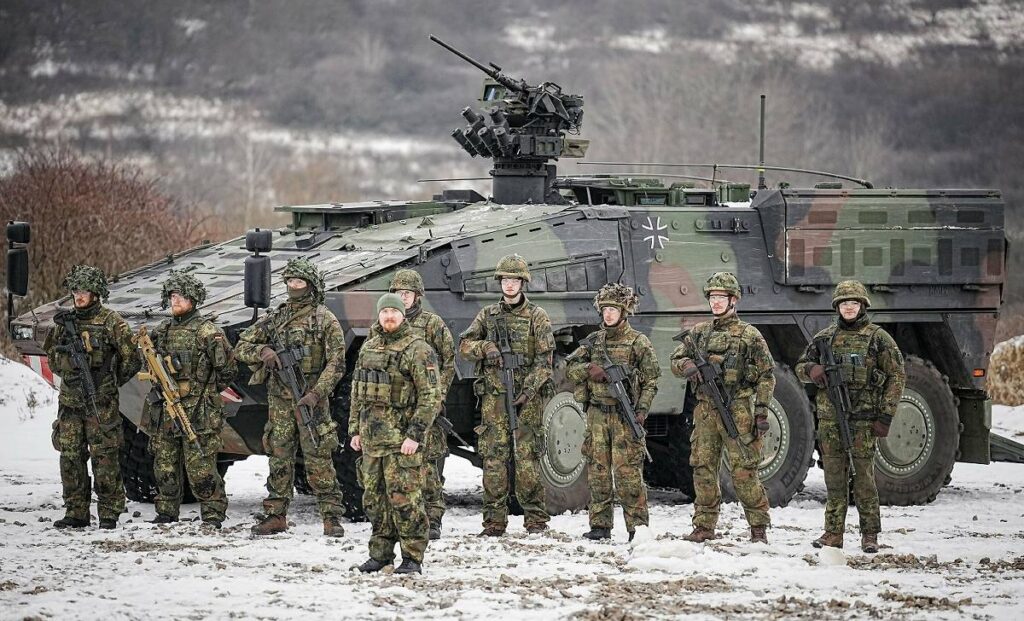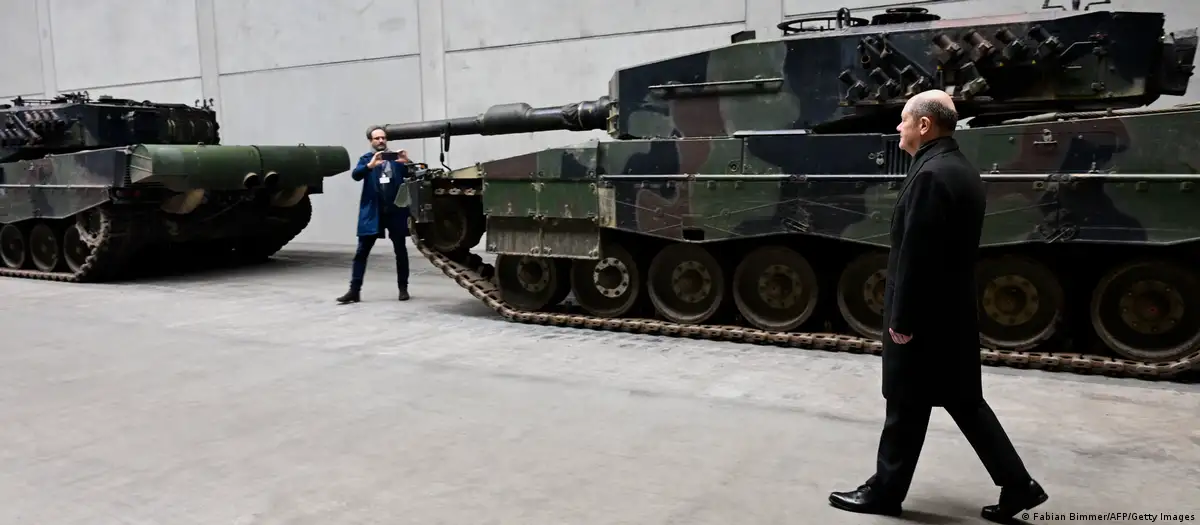European Social Democrats begin campaign for EU elections by making social justice a priority, even in the face of growing calls for more military spending in Europe.
(DW) There was a strong police presence in the center of Rome last Friday (01/03). The headquarters of the Democratic Party, Italy’s social democratic party – just a few steps from the famous Spanish Steps – had been cordoned off. Leading figures in European social democracy, including Spanish Prime Minister Pedro Sanchez and German Federal Chancellor Olaf Scholz, were in town to meet with center-left MEPs.
In a crowded room inside the building, the leader of the Progressive Alliance of Socialists and Democrats in the European Parliament, Iratxe Garcia Perez, gave an impassioned speech about the upcoming campaign.
“The main theme of the campaign is the defense of our values, our democracy and our security,” said Garcia Perez, on the eve of the congress of the Party of European Socialists (PES) in the Eternal City. “This is what we are proposing to Europeans in all 27 countries: a future based on solidarity, equality and opportunities for all.”
Preparations for the election campaign
The Social Democrats are in charge of governments in Germany, Spain, Romania and Denmark, and an interim government in Portugal. Analysts predict that they will remain the second largest force in the European Parliament after the European elections, which will take place in all 27 member countries of the European Union at the beginning of June.
But the values listed by Garcia Perez, and which are the basis of the socialists’ appeal among Europe’s working class, could be at risk. As the EU struggles to continue supporting Ukraine in the war against Russia and is faced with the need to invest more in its own defense, calls are growing to change priorities and finance these current challenges with cuts in social spending.
“Public support for paying the defense bill is fragile,” says economist and defense policy expert Marcel Schlepper of the Ifo Institute, a Munich-based research institution.
He and other researchers recently published a paper on the subject. The conclusion: while Europeans are generally aware that they need to increase defense spending, their attitude changes when it comes to their own country’s contribution.
At the moment, there are only four countries in Europe – Sweden, Bulgaria, Germany and Norway (which is not a member of the EU) – in which more than 50% of the population is in favor of their own government spending more on defense.
A “well-rounded” welfare state
So, according to Schlepper, the real question, and one that people are avoiding, is: “Are you willing to save in other areas or pay higher taxes?”
It’s a difficult debate, acknowledges Social Democrat MEP Joachim Schuster from Germany. But for him, the issue is being discussed irrationally and hastily.
After all, he argues, NATO’s European members already spend three times more on defense than Russia. Schuster suggests first analyzing where this money is being spent and whether some of it is being wasted.
It is “absurd that some members of conservative and liberal circles” rule out issuing debt and instead advocate cuts in social spending, says Schuster. In addition, why not create higher taxes for high salaries, he proposes.
Schlepper disagrees. He argues that in Europe there is already a “very comprehensive” welfare state in countries like Germany, France, Italy and Spain, which allocate the equivalent of 27% or even 32% of their GDP to social spending, compared to 2% or even less on defense.
He believes that, given their share of total public spending, social spending needs to play some role in defense financing. “This could be done by unifying social spending, or at least by not increasing social spending any further,” suggests Schlepper.

Helping the most vulnerable
For European Social Democrats, ideas like these are hard to swallow. “We have to defend our security and the European model – which is the social model,” said Garcia in her speech in Rome. She also insisted that a debate on existing resources and fiscal policies is needed first.
“It’s not inevitably social welfare that needs to be cut,” says MEP Sven Mikser, Estonia’s former defense minister, who now represents his country’s Social Democrats in the European Parliament.
Mikser points out that events such as the recent covid-19 pandemic or the energy crisis in Europe tend to exacerbate pre-existing social divisions and inequalities in societies. And that’s why it’s important to help those who are most vulnerable and place a greater burden on those who are least at risk.
But Mikser also says he hopes voters will understand that Europe is dealing with a very immediate threat to its security. “It is imperative that we do more for our armed forces and our security, otherwise we could find ourselves in a totally untenable situation in just a few years,” he says. “And that’s something I’m not going to hide from my constituents.”
*** Translated by DEFCONPress FYI Team ***
